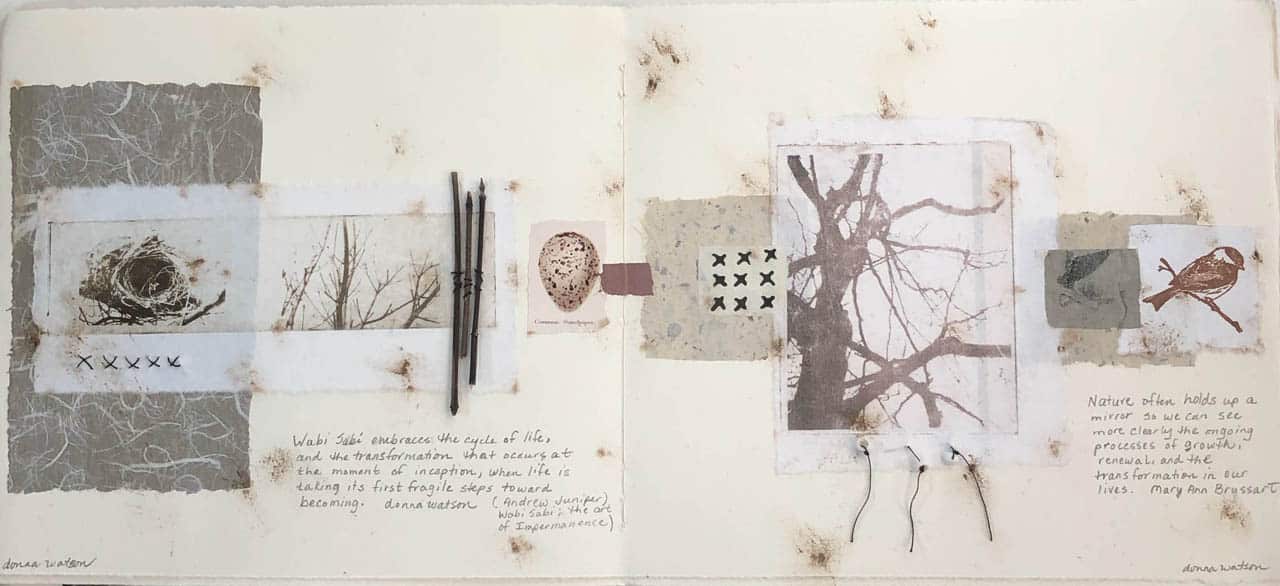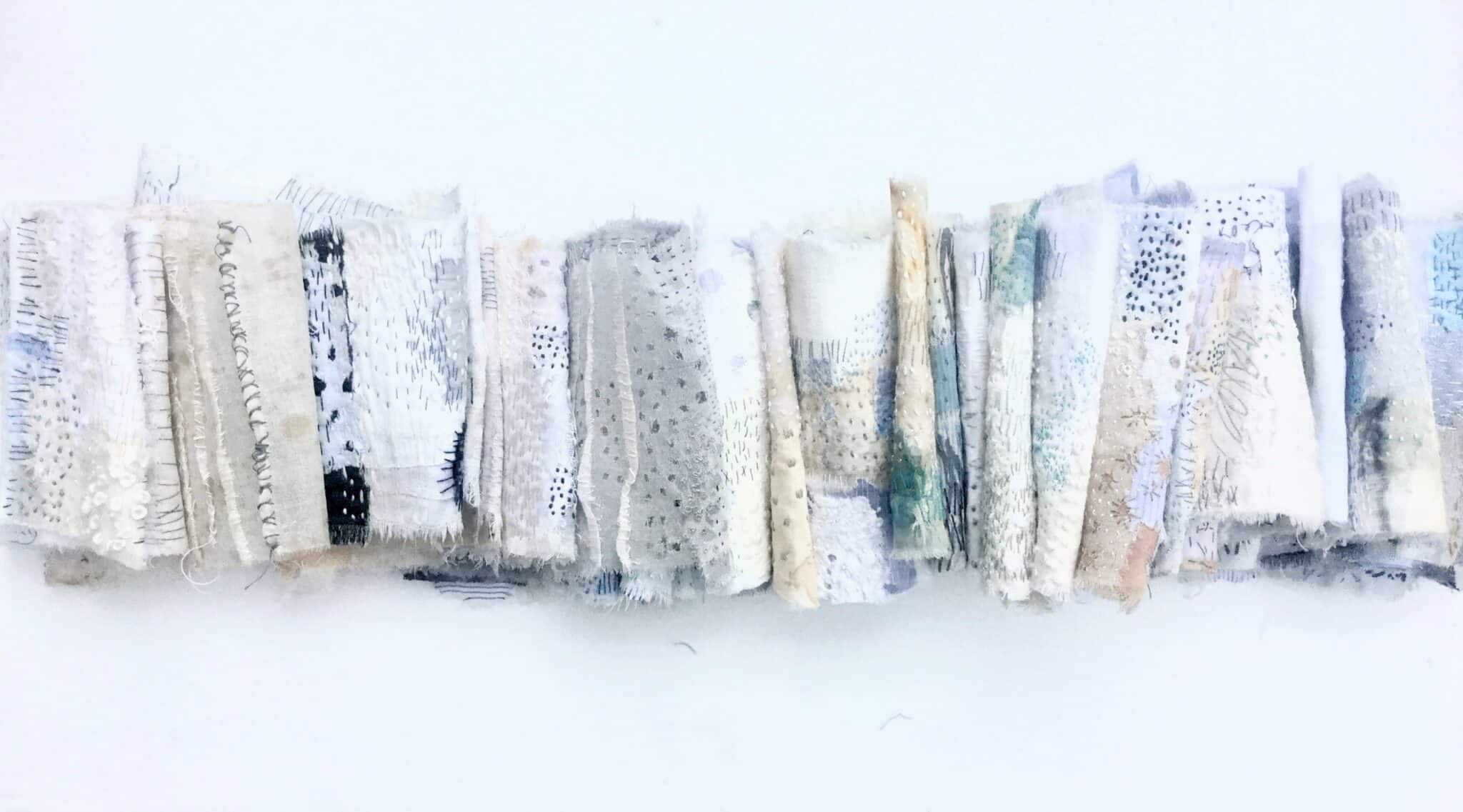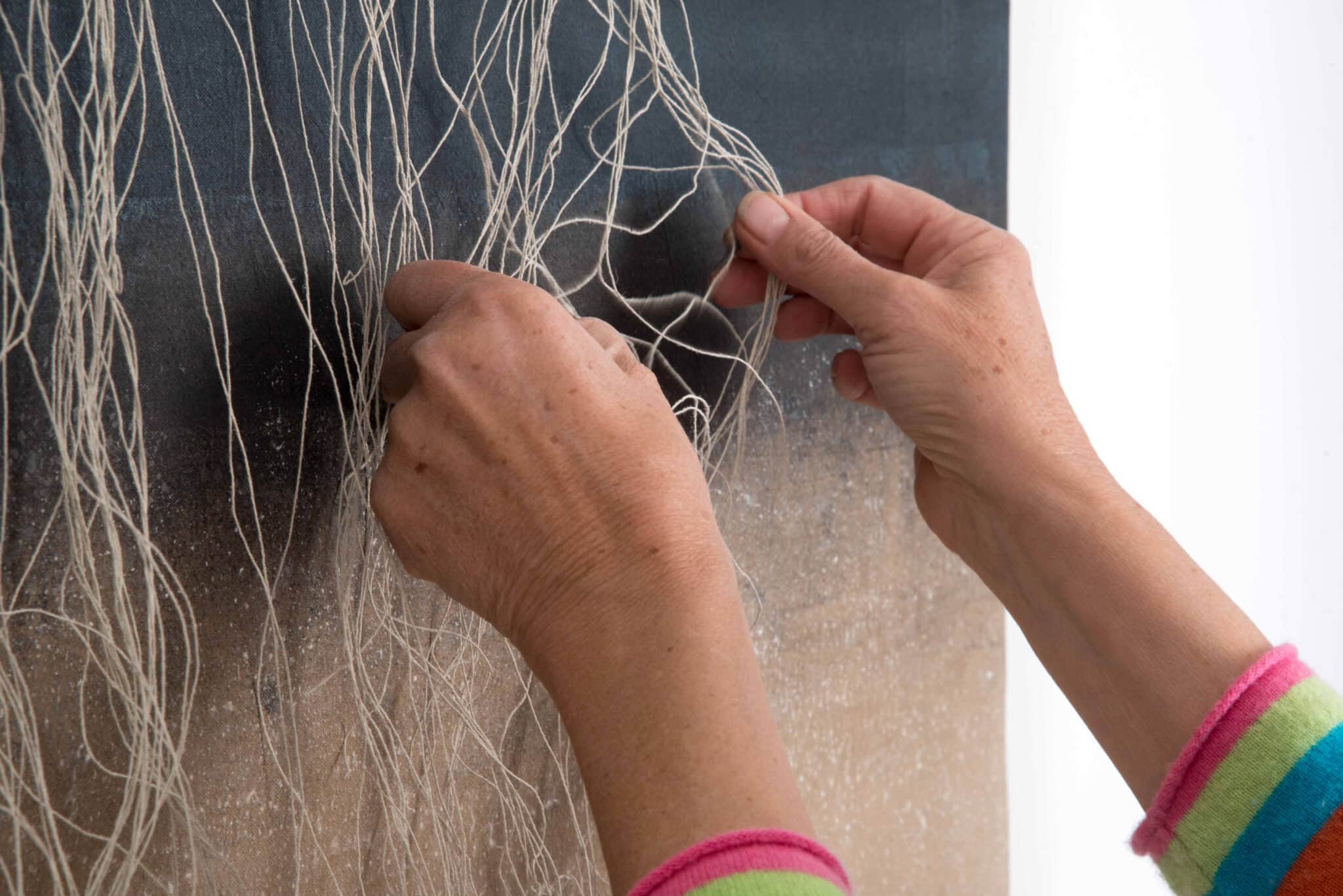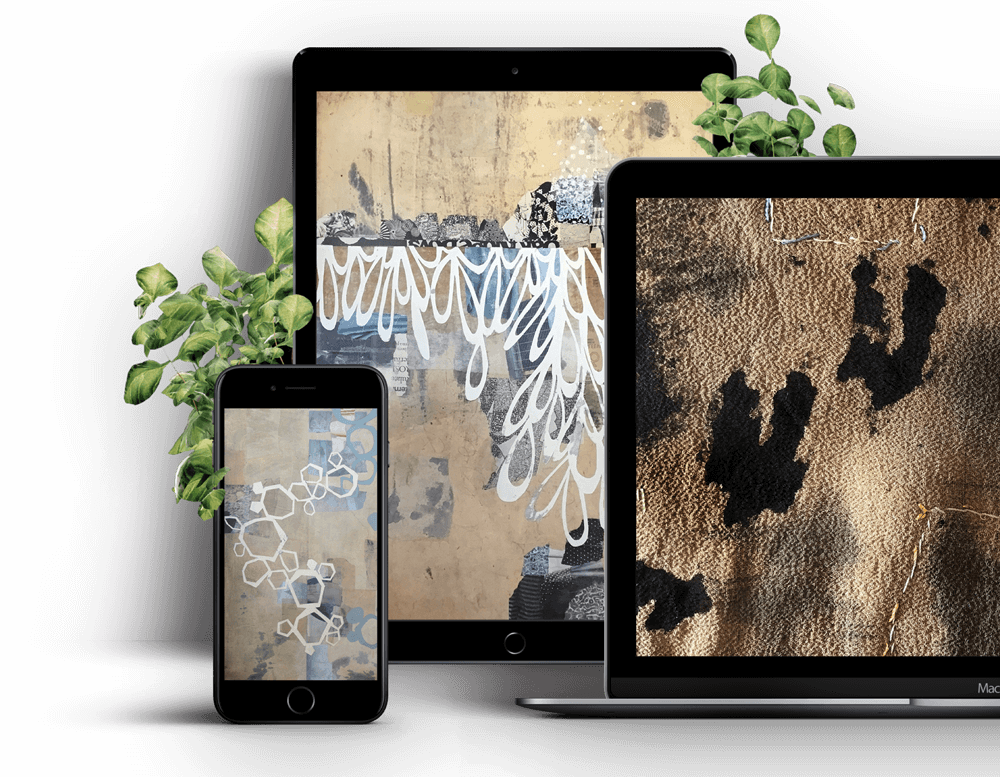Kuweni Dimuthu Dias: Reclaiming My Roots
Sri Lankan-born, Australian-based artist, Kuweni has carved a unique space for herself in the art world by blending her life's landscapes with cultural narratives that resonate on a deeply human level. During our Friday Feature Artist interview, Kuweni shared stories about her art and her journey to reclaim her Sri Lankan culture.
Kuweni Dimuthu Dias's Friday Feature Artist Interview can be found at the bottom of this page.
Have you ever walked through a forest and felt an inexplicable connection to the earth beneath your feet, as if the soil, the trees and the very air around you were whispering stories from centuries past? Imagine for a moment if those whispers could take form, if the essence of nature itself could be captured and transformed into a visual narrative that speaks directly to the heart.
For Kuweni Dimuthu Dias, creating art that is deeply connected to the environment isn't just about technique. It’s about being in tune with the world around you, listening to the silent stories that the land, the water and the air carry.
This article is only a small insight into our Friday Feature Artist interview with Kuweni and we recommend clicking on the YouTube video at the end to watch the full interview.
.jpg?width=695&height=463&name=Kuweni%20Dimuthu%20Dias%20(3).jpg)
Place-based Art
Kuweni is a Place-based Artist, which means her art is based around the places she works. “I make my own pigments and tools from place,” she explains. “I'm a diasporic artist, meaning the work I do also is from my experience or my cultural identity from Sri Lanka and also my life identity and experience in Australia, and I'm a multidisciplinary artist. I do fibre art. I do work on paper and fabric. I also do performance art and work on projected works, such as video projections on surfaces, like buildings.”
Along with place, her identity as a Sri Lankan Australian and her identity as diasporic is also essential to Kuweni's work. “My practice is very much based or rooted in ritual drawing, a very old tradition from Sri Lanka. It's a vanishing heritage. For me, my work is a contemporary extension of this whole heritage. Diaspora are people who are migrants, who hold the culture of their homeland within the new culture of their new country.”
Diasporic Explorations
The combination of multiple cultures is always in Kuweni's mind as she creates her works. “In 2021, I went to being a full-time artist and one of the things I took up was to work with a company that hired me to hold a public forum, and I requested that I would hold it for just women of colour.
We heard it for three months, and it was all through creative expression, through symbolic drawing. They just drew images of what we were talking about, and we would unpack what those images meant to them. There were themes they wanted to belong and matter in Australia. These are some of the themes that generally they have no language to express. We wanted to capture the feeling that they were drawing. But we had a framework that we followed.
The whole vision was that we wanted to educate the general public about what it was to live like a diasporic migrant in Australia.”
Kuwani was exploring the questions:
“How do we respectfully live within a culture?
How do we also educate ourselves to this different way of living respectfully, of a culture within a culture, and also healing, and how do we become responsible for the place and the people?”
This was the start of Kuweni’s journey towards deeper cultural understanding, “I'm learning that it's holding a culture within a culture,” she says. “So in my case, my culture is thousands and thousands of years old, and so is the culture that's here in Australia. First Nations people have lived here for thousands of years. So, my exploration is about how I hold a culture within a culture respectfully.”
.jpg?width=697&height=465&name=Kuweni%20Dimuthu%20Dias%20(2).jpg)
Re-visiting Sri Lanka
Kuweni has visited Sri Lanka again and found this an enlightening experience. “I felt I didn't belong again,” Kuweni explains, “because I've lived in Australia for so long, I was no longer just Sri Lankan, I was Australian.
I had worked with elders, and there was a lens that they had given me that I had inbuilt within my psych and my body and myself. So when I was working there I would still practice these ways of working and responding.
I felt, ‘Oh, I'm not here and I'm not there.’ When I sat with my Indigenous elders and ritualists and slowly unlearned, it was difficult. It was a struggle. In Indian life there’s always an activating force and a restraining force. So, of course, the restraining force was active. They didn't understand me. I didn't understand them. They are very slow paced. Sometimes they would want to meet you, sometimes they say they'll meet you, but then they don't want to meet you. But with a lot of patience and persistence, which came in a practical way, I reclaimed my roots.”
Kuweni has now combined the teachings of her birthplace with those of her adoptive home. “Indigenous elders taught me how to dream the land and then listen to the land and visit the deep space of deep listening, deep thinking, and deep learning,” she says. ”That's how we worked and responded with the land. But in Sri Lanka, what I learned was, it's dreaming of the deities. There are these deities that are place-based deities, and the longing and the belonging, the connection with the land, is through harvest rituals. So it's how they end with the land.
For us, culture in Sri Lanka is what we have sown and harvested. So they are very interweaved, the rituals and the cultural aspects of these harvest rituals. I learned those things, and then it was this other layer of dreaming, the land and over that, dreaming the deities.”
The Importance of First Nations
Wherever you live, Kuweni believes there is much to gain from indigenous knowledge.
“Reach out to your First Nations elders,” she advises. “Reach out, have a conversation. Don't be exploitive and extractive with the relationship. It's relational. Be patient, until it's time and they’re ready to share with you what's important, but very deeply, listen and find your own belonging through the First Nations lens. I think it's so important for the future of this country that we all know it’s First Nations first, and then we belong with our cultures. I think we still have to hold on to our cultures very strongly, but how do we hold that strength in? If we have First Nations, we feel held. That's how I feel. I feel my culture is held. I'm not pressing it against something. I'm being held by this beautiful culture that existed for thousands of years.
My culture has existed for thousands of years in another land. They've invited me here, and they're holding it with me, which is such a big thing, there's that hybridity and the cultural lines become very blurred, and something else happens, and if that happens, it’s such a beautiful space to be living in.”

About Kuweni Dimuthu Dias
Kuweni, a Sri Lankan-Australian artist based in Beechmont, Australia and Bibile, Sri Lanka, draws inspiration from her diasporic experience, weaving a rich tapestry of culture and identity in her work.
A certified Regenerative Practitioner from Regenesis USA, Kuweni employs raw mark making, regenerative practices, and cultural facilitation in her artistic endeavours. Her creations, rooted in ritual and ceremony, delve into the pulsation of place, reflecting a profound connection to her diverse heritage and serving as a testament to her commitment to arts activism and cultural regeneration.
Join Our Newsletter
OUR YOUTUBE CHANNEL
View our interviews and more on our Youtube channel!
OUR FACEBOOK GROUP
Join our Community and stay updated with our upcoming announcements!



